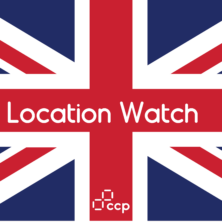
Will changes for other businesses lead to a realisation that contact centres have been progressive in their approach and potentially increase the recruitment pool or will contact centre leaders need to make changes to become more competitive in recruitment of the best talent?
Perhaps we are more progressive in contact centres than we give ourselves credit for?
We’ve written before around the view that despite our collective best efforts, our industry can often have something of an image problem with those on the outside, and, unfortunately, for some who work in the sector as well, because of arcane processes that may have been applied by some managers.
Working in contact centres can be tough and is seen by many as an interim role as opposed to a career path. The use of terms like CX may make it a more noble cause, even if the gap between customer ambition and realities can seem large. However, (I hope!) many people reading this article will recall a journey from a stop-gap role to a ‘proper’ career, which has delivered job satisfaction, personal development, promotions and a level of reward which affords a quality standard of living and the attainment of life goals.
You may also reflect on the flexibility that working in contact centres may have afforded you in your life, initially from being in operations in which there were options as a result of:
- 7 days per week, which may have resulted in working a weekend day, but having time off in the week,
- 24/7 operations where dealing with something through the night resulted in lieu time at a convenient time
- Creating 4 day weeks with compressed hours to enable flexibility for your staff and ensure capacity where your customers needed it
- Split shifts (ok maybe not 25 years ago, when that meant going to work twice in the same day, but post pandemic with home working)
- Part time shifts which worked around the school run or after lectures
- The ability to work remotely and therefore mitigate communing time
So, perhaps when talking about flexible working and encouraging greater control over work-life balance we should already be seeing contact centres of a beacon of what can be achieved (even if that does sometimes mean rolling rotas to ensure that customers have access to support when they need it?).
But it doesn’t end there does it?
Contact centres – through necessity in some cases, of course – have embraced the real living wage and providing better rewards for frontline staff. However, the reality is that skilled contact centre agents may still be earning similar amounts to those in roles where there may be less stress or pressure. Self-service and automation mean there are less “easy” contacts and as customer expectations and levels of knowledge increase, the role does get harder. Put simply, there is more for agents to deal with now, when considering the complexity of queries and vulnerabilities of customers.
Admittedly, where costs are key and businesses are feeling pressure to manage the cost of customer service and acquisition, then offshoring has been the norm for some time. As we know, offshoring doesn’t necessarily reduce quality, but it takes hard work to get it right. The manufacturing sector had already followed this route, in many cases years earlier. Unfortunately, our industry faces more scrutiny for moving work out of the UK than others, it seems.
The same customer service ‘exceptionalism’ may also apply to automation, with a recent Gartner survey highlighting that 64% of customers would rather companies didn’t use AI in customer service delivery.
Out of necessity the industry will keep pace with changes to minimum wage, however there will be an inevitable impact to either the cost of the product or margins. In which case more innovative techniques will need to be adopted to maximise margins.
I’d like to think we’ve been pioneers in ensuring equality. When I see news pieces around gender and representation of women in boardrooms, I reflect on the fantastic female influences I’ve had through my career, senior management and directors who have shaped my career and given me opportunities to develop.
I believe that contact centres are (for want of a better term) unfortunately ahead of the changing employment curve. I say unfortunately as contact centres’ relative enlightenment can disadvantage other sectors. I don’t have access to contact centre-specific data on gender pay gaps. And though I assume a gap is still sadly probable, I would think it is relatively lower in contact centres, based on the skill, talent and mindset that we have in the sector,
UK Contact Centre Decision-Makers’ Guide 2024“Women hold about 41% of senior leadership positions within the UK contact centre industry”
So, could this be a new dawn of realisation?
We were discussing last week the same story in multiple newspaper articles around easyJet and their recruitment of people aged 50 and above for cabin crew roles, citing their life and communication skills as a key benefit to passengers and by extension their new employer.
The shift rotas offered the flexibility of working alternate weeks, for example, or four days on four days off (I recall that over 20 years ago in contact centres we called this a continental shift pattern). This type of recruitment should open up the ability to recruit people who previously decided to leave full time employment after the pandemic back into roles.
Admittedly, customer service at 35,000ft may have more appeal for some than dealing with a phone call or webchat concerning a utility bill, for example. However, in contact centres we recognise clearly that life skills and knowledge are of significant benefit to our customers and have been recruiting from all demographics for decades.
Michael Brown, Director of Cabin Services at easyJet“We tackle misconceptions about the job and broaden horizons for even more talented people looking for a new opportunity who can bring their wealth of life experience to the industry”.
We believe that we are well ahead of other sectors in our approach to working practices and rights. Undeniably, negative perceptions evoking the ‘dark satanic mills’ persist for many and horror stories from 20 years ago (and occasionally today) remain. But the contact centre industry is probably in a better place than we are given credit for.
We will however need to manage challenges as a result of changes to legislation around worker rights, there are likely to be changes in WFM that will need to be considered, potential impacts to payroll and management of holidays.
Additionally, there may be changes harder to identify on the surface – maintaining knowledge and communications when more people work compressed hours could be one.
We have the skills and tools ready to support altered employment practices and we’ve demonstrated time and time again that we can change when needed. If you are facing challenges maintaining employee knowledge and experience, managing performance metrics or even protecting a sustainable margin in your contact centre operations then you won’t be alone.
Gerard O’Hare, WorkNest Legal Director“Once seen as a modern-day mills and bastions of the overseer, contact centres should, rightly, be lauded and credited for leading the charge for innovative working practices such as the compressed hours working week, and flexible shifts around childcare responsibilities which the industry introduced at the dawn of the contact centre”.
We are here to help, just ask.
The Customer Contact Panel team is made up of contact centre professionals who have seen a number of challenges and changes in the sector over the past 30 years, we use our experience to support both in-house operations, those wanting to outsource and outsourcers to deliver contact centres that match their ambitions whether that be sales or service.
If you have a thorny challenge then we’d love to hear about it, we share our thinking and have supported fantastic brands in finding the right fit solution for their and their employees’ needs. We have over 220 contact centre partners and 120 technology partners, we don’t have favourites only right fits for your needs.




